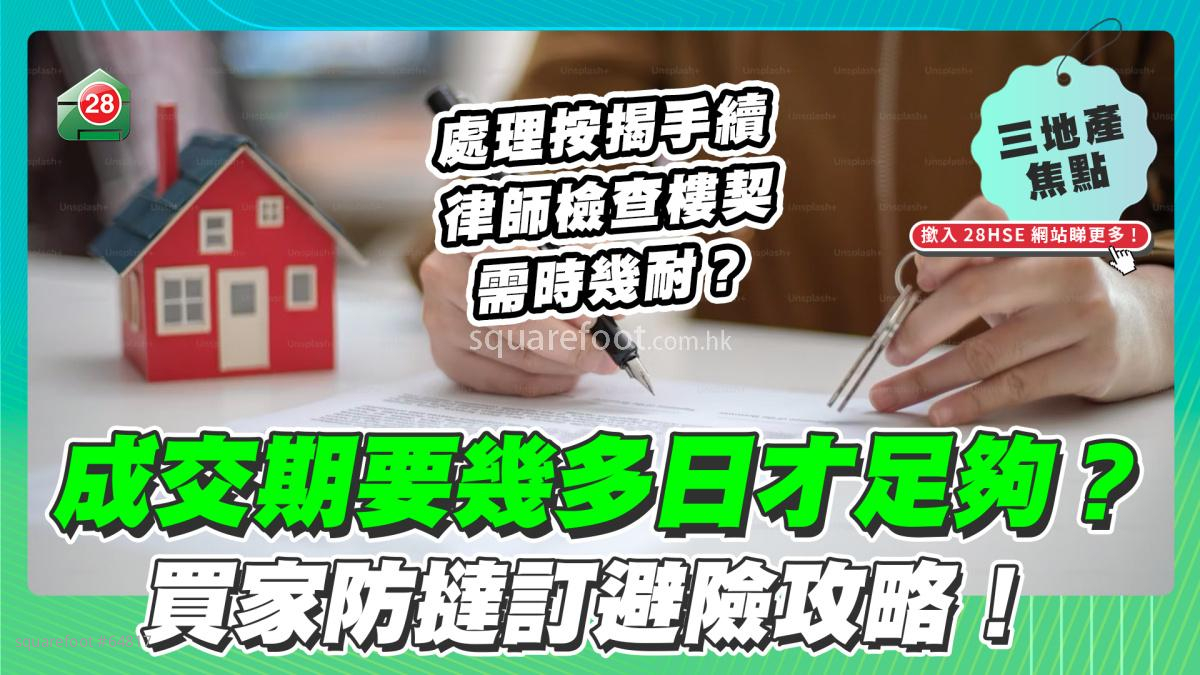- Home
- News
- Expert Blog
- Wed Property Focus
- How Long Should It Take To Close On A House?
When buying a second-hand property, once the buyer and seller agree on the price and decide to proceed, they sign a Provisional Sale and Purchase Agreement. This agreement establishes the intent of both parties to proceed with the transaction. However, many overlook an important detail at this stage: the closing period.
The closing period refers to the time from the signing of the provisional agreement until the property transaction is officially completed. There is no fixed rule for how long this period should be—it's decided by both parties when signing the provisional agreement. The purpose is to give the prospective owner and their lawyer enough time to handle the necessary property-related matters.
The closing period must be determined on the spot. If the prospective owner is not familiar with this, the length of the closing period can easily be dictated by the current owner. So, how long is enough? What risks do buyers face with a very short closing period?
In Hong Kong, a common closing period is 60 or 90 days, and it is recommended not to be shorter than 45 days. For buyers, the closing period should not be too short because lawyers need time to check for any issues with the title deeds, and buyers need time to handle mortgage procedures. Buyers opting for high loan-to-value mortgages will also need additional time to arrange mortgage insurance.
On the closing day, the buyer must go to the lawyer's office to sign the transfer deed and mortgage deed, pay the remaining balance of the purchase price, and settle the agent's commission. If the buyer is applying for a mortgage, the lawyer’s office will receive the loan from the bank and transfer the funds to the seller. If the mortgage loan is not approved on time, the buyer must find a way to cover the shortfall, risking the inability to complete the transaction on time and forfeiting the deposit.
Given the delays experienced during the pandemic and mortgage approval bottlenecks, many suggest allowing at least three months for the closing period to avoid unexpected issues. Additionally, to ensure a smooth mortgage application process, buyers should apply to about 3 to 4 banks instead of just one to save time.
Conversely, for owners of vacant properties, a shorter closing period is preferable to secure funds quickly. Therefore, if the seller dictates the closing period during the signing, the buyer might not have enough time to complete the transaction, so this needs careful attention.
Some might think that setting a longer than usual closing period would be very safe. However, this is not recommended, as banks generally only accept loan applications for transactions closing within three months. If the closing period exceeds three months, the bank may delay the approval, affecting the outcome.
Can the buyer request to extend or shorten the closing period after it’s set? Yes, but it requires the seller's consent and a contract amendment. It's important to note that the seller is not obliged to comply. If the seller disagrees, the transaction must be completed within the original closing period. Therefore, buyers should ensure they have sufficient time to handle all the necessary procedures.
Like
| Property Type | Price | Ads Period |
|---|---|---|
| For Sale Property | ||
Normal Listing Typical One | HKD:1000 (or Hsemoney:1000) | Valid:90 days |
Golden Top Listing Higher position than Top listing 2-3times better performance | HKD:3000 (or Hsemoney:3000) | Valid:60 days |
| Rental Property | ||
Normal Listing Typical One | HKD:1000 (or Hsemoney:1000) | Valid:80 days |
Golden Top Listing Higher position than Top listing 2-3times better performance | HKD:3000 (or Hsemoney:3000) | Valid:60 days |
